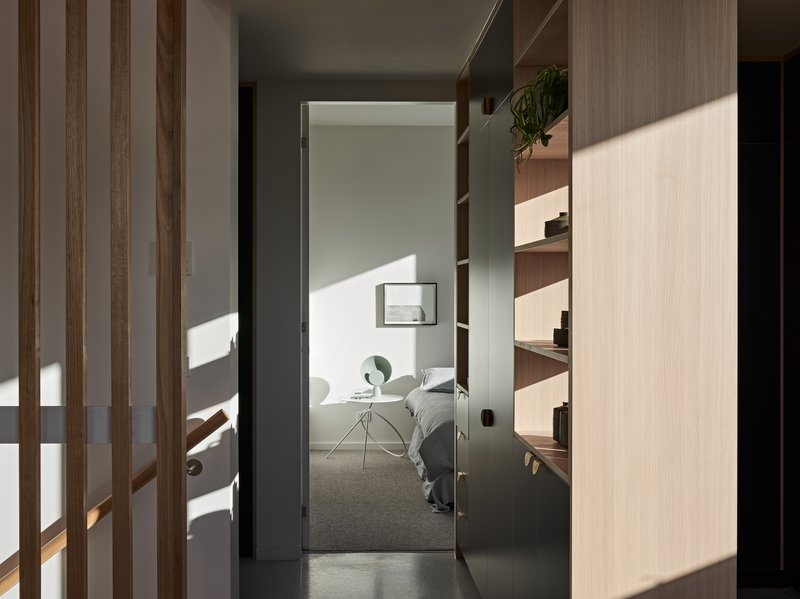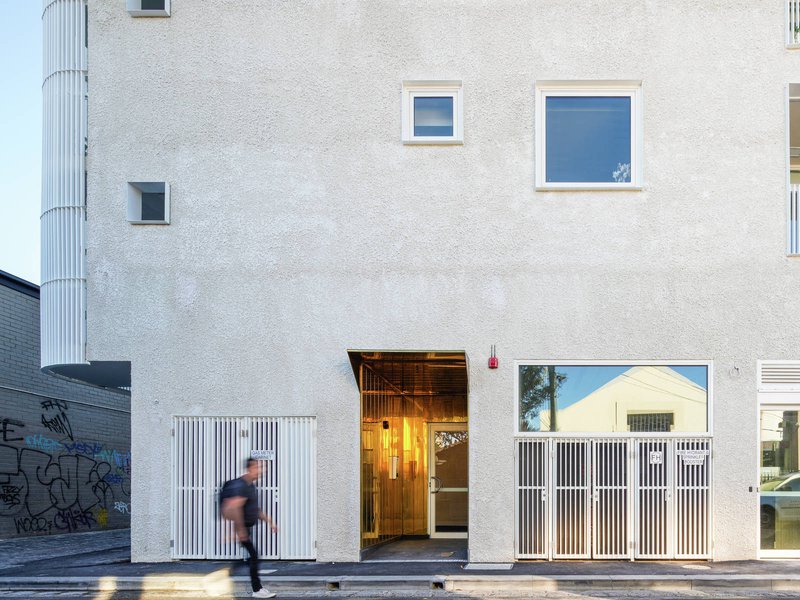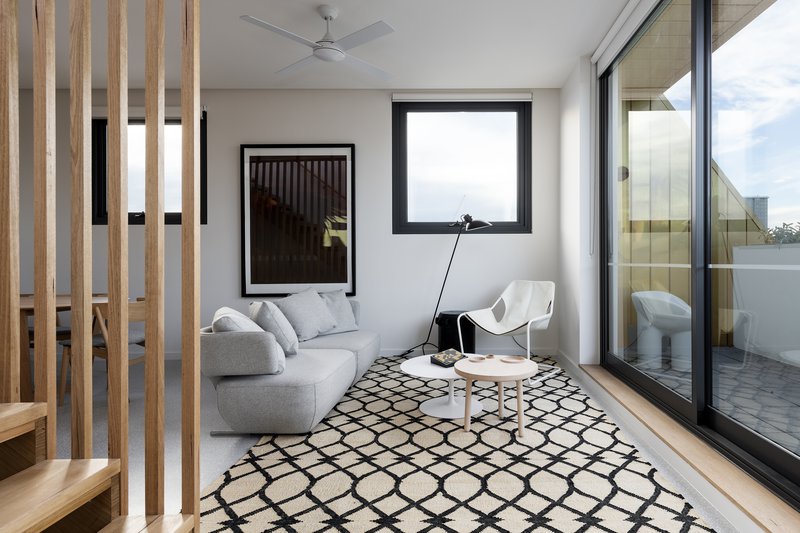Situated south of Johnston and east of Wellington, Dight Street by Milieu overlooks the epicentre of Collingwood, a precinct in the midst of transformation. Immersed in the dynamic neighbourhood’s hive of creativity and innovation, the site itself inspired Fieldwork’s considered response to inner-city living.
Dight Street is Milieu’s fifth contribution to Collingwood and second completed in collaboration with Fieldwork. Living and working locally, Milieu has consistently employed an intelligent approach to creating unique residential projects informed by their surrounds. Fieldwork, also local to the area, is a dynamic practice driven by a design ethos to improve the status quo. Witnessing the quiet transformation of their inner-city community is a constant source of inspiration and intrigue.
Proportion and position of site inspired the realisation of Dight Street’s 12 progressive apartments. Exemplar of a partnership cemented by a common sense of discovery and innovation, the site’s resonance of Japanese residential design encouraged Milieu to follow Fieldwork’s lead and embark on a research trip to Tokyo, to examine various examples of the city’s built-form. The resulting five-storey construction is a refined exercise in elements of Japanese design-based principles such as simplicity, asymmetry, contrast, understatement and stillness.

Consisting of ten one-bedroom apartments on the first, second and third floors, ascended by two double-story penthouses, the scale, balance and proportion of each apartment has been thoughtfully weighed. All with dual aspect, the apartments are linked by an external circulation staircase inspired by classic ‘six-pack’ walk-up apartment buildings. This, along with external corridors, delivers views back to the city, providing an alternative open-air experience to the brass-capped entrance and internal elevator.
Dight Street’s exterior is an exercise in harmony and balance. Referencing local textures and architectural vernacular, as well as staying true to the underpinning design principles, contrasting materiality is paired to evoke the idea of ‘wabi-sabi’ – an appreciation of imperfection and the way things change over time. Traditional materials, rough and refined, have been used in a contemporary way, the exterior a marriage of textures with opposing qualities, intended to age gracefully over time.
“In the Japanese concept of ‘Wabi Sabi’, wabi celebrates the minor defects that are an inevitable part of the construction process and the inherent textural qualities of materials, while sabi honours the transient and impermanent quality of objects and how they wear over time,” says lead architect Quino Holland.

“There is a prevalent attitude in modern construction to make buildings that don’t change. Modern commercial construction values stability and a consistency of materials, which don’t age. Given the site context is highly textural, our response was to explore materials with a certain imperfection such as the rough render, and that would evolve and patina with age, such as the brass.”
Connection to the progression of time and local identity, as well as the links between exterior and interior, are drawn via thoughtful design choices.
Says Holland, “Both the brass and the rough render are interesting materials because they are very changeable from day to day and season to season. Neither is flat, they are very multidimensional.”
Dight Street’s brass encased entry beckons, acting as a welcome beacon for guests and residents. Juxtaposed against the rendered base it provides an aesthetic connection to the sculptural brass form that crowns the top storey. At ground level, Kvadrat Maharam will take pride of place in the commercial tenancy – the international textiles house aligning with Milieu’s philosophy of design excellence.
Timber and polished concrete flooring, bespoke joinery and brass fittings take their cue from the exterior; the interior a tactile palette of materials designed to invoke a sense of warmth and tranquillity whilst ageing gracefully. High ceilings and floor to ceiling dual aspect windows invite the outside in with city views and cross-flow ventilation – a strong sustainability agenda informing passive design, ensuring Dight Street is a thermally responsive building.

Committed to producing the best in residential construction and design, Milieu and Filedwork have conceived an intimate pocket of seclusion amongst the exhilarating transformation of Collingwood. Imbued with Japanese design principles, Dight Street by Milieu provides innovative, thoughtful, community enriched living for its residents.
Dight Street by Fieldwork for Milieu is located at 109 Dight Street, Collingwood.
Key Facts:
- Dight Street by Fieldwork for Milieu comprises 12 homes across five levels, with 10 one-bedroom apartments on the first, second and third floors and two double-story penthouses on the fourth floor, with rooftop decks.
- Environmentally sustainable design features include; two passive and active shading solar windows, rainwater collection and reuse, low energy lighting, water-efficient fixtures, double glazed glass with thermally treated structure and PV system to subsidise energy consumption.
- Every apartment is provided with a secure and dedicated bike space as well as a secure and accessible storage cage and car park.

